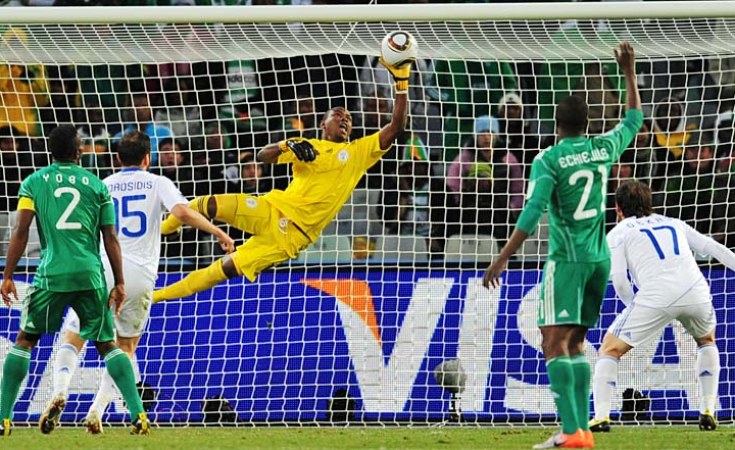The phrase "turning point of the game" has never been more apt than when describing Sani Kaita's red card in Nigeria's 2-1 loss to Greece on Thursday.
The Super Eagles were dominant until the 33rd minute of the match, having taken an early lead through Kalu Uche, and they monopolised possession and chances.
But Kaiti's lashing out at Greece's Vasilis Torosidis earned him a deserved sending-off and left his teammates facing a tide of Greek pressure for the remaining 57 minutes.
Nigeria coach Lars Lagerback admitted afterwards that his side had planned for Greece, but not the Eagles, losing a player.
“We prepared well for the game, but what we never thought of is what the other team would do if we had a player sent off. I knew what we would do if we were a man up on them - playing with 10 men at this level is always going to be very difficult.”
The result leaves the Nigerians needing a healthy win over South Korea in their next fixture, and hoping that Argentina see off Greece as well.
“Under the circumstances I was proud of the attitude of the team and I hope the Super Eagles fans can appreciate the hard work done by them,” Lagerback said. “We have to start again tomorrow and hope that in their final match Argentina can do us a favour and beat Greece. We also have to now win against South Korea.”
For the Greeks it was not just a first-ever World Cup win, but the first time they had scored in five FIFA World Cup finals appearances.
Their coach, the 71-year-old German Otto Rehhagel, made an uncharacteristic attacking move following the sending off by adding an extra striker to the mix. It paid off handsomely.
"Unfortunately, the game started just like the last one and we went a goal down," he said. "My team needed quite some time to recover. We were dominant after the red card, but there are plenty of examples where the team with the extra man goes on to lose.
"However, we reacted well to conceding the first goal, showed tremendous passion and belief, and turned the game around."


